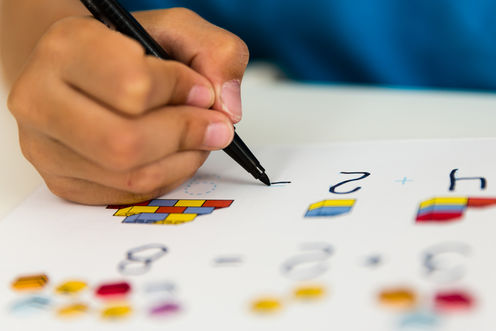
Mention the terms “intellectual giftedness” and “learning disability” and there is a general understanding of what each term means. However, most people are unaware that in many circumstances the two can go hand in hand.
Current US research suggests that 14% of children who are identified as being intellectually gifted may also have a learning disability. This is compared to about 4% of children in the general population. No-one has been able to explain this discrepancy.
While children who are intellectually gifted are acknowledged, the fact that some of these students could also have a learning disability is ignored. Teachers are not trained in identifying these children or how to teach them so they can reach their full potential.
Identifying a gifted student with disabilities
While generally referred to as “GLD” (gifted with a learning disability), these children are also referred to as “twice exceptional” (2e), and “double labelled”. Their disabilities can include ADD/ADHD, dyslexia, processing disorders, Aspergers’ and physical and emotional disorders. These children may be in gifted programs but it is more likely that they would be in a specialist remedial program with their intellectual giftedness ignored.
GLD children are often hard to identify. The most common and significant feature of a GLD child is uneven or inconsistent academic performance which is unexplained and unpredictable.
They may achieve outstandingly high results in academic activities outside of school, yet this same level of achievement is not reflected in their school assessments. They may excel on multiple-choice tests, yet struggle when asked to compose answers on a blank page. Others may excel verbally but perform poorly on pen-and-paper tasks.
Difficulties arise with identifying these children as they generally fall into three categories:
-
Those whose intellectual giftedness is recognised and whose disability only becomes apparent as the difficulty in their schoolwork increases
-
Those who are not identified as either gifted or with a learning disability because they are demonstrating average achievement
-
Those who are identified as having a learning disability and may be in a learning support program but their intellectual giftedness is not recognised.
To further complicate things the identification processes for gifted programs and learning disability services are mutually exclusive. In schools there is usually a gifted education coordinator, who caters to the needs of gifted students, and a special needs team, whose role is to provide support services for students with learning disabilities. Their roles are specific to these two groups and there is rarely any overlap or consultation between them.
The consequences of not being recognised
GLD children continually struggle to make sense of having high intellectual potential and disability. They begin to doubt their abilities and become increasingly frustrated. After repeated failures, unidentified or unsupported GLD children tend to conclude that they are “just stupid” and can’t see the point in trying.

Teachers may label them as lazy. The result is continuing underachievement, lack of motivation, behavioural issues and disenchantment with school. The long-term results are often school refusal, school dropout, social and family problems, chronic under-employment, low socio-economic status and serious mental health concerns.
These results impact not only on the child but ripple outwards, splintering families, putting financial strain on parents, burning out support workers and reducing quality of life for all involved. I spoke to one such child in my research who told his parents how he feels about school:
You don’t know what it’s like when you bring me to this place. It’s like a nuclear bomb going off in my stomach, it spreads to my head and I can’t think and it spreads to my hands and I can’t make them move.
Children who are intellectually gifted with a learning disability are frequently misunderstood. Some educators, on the one hand, point to the child’s giftedness to “prove” that the child has no real learning disabilities and, on the other hand, point to the child’s learning disabilities to suggest that the child is not really gifted.
What needs to be done?
Failure to recognise these children stems from a failure by federal and state governments to ensure that teachers receive training that enables them to identify these children and meet their educational needs.
There needs to be sufficient and consistent levels of community, university, teacher and institutional awareness and understanding of GLD children. The earlier a child can be identified, the greater the chance that the issues can be addressed and the child will reach his or her potential.
For support regarding these children there’s an Australia-wide online learning community and support group called GLD Australia whose members are parents, educators and other professionals concerned about children who are intellectually gifted with learning disabilities.
Catherine Wormald does not work for, consult to, own shares in or receive funding from any company or organisation that would benefit from this article, and has no relevant affiliations.
